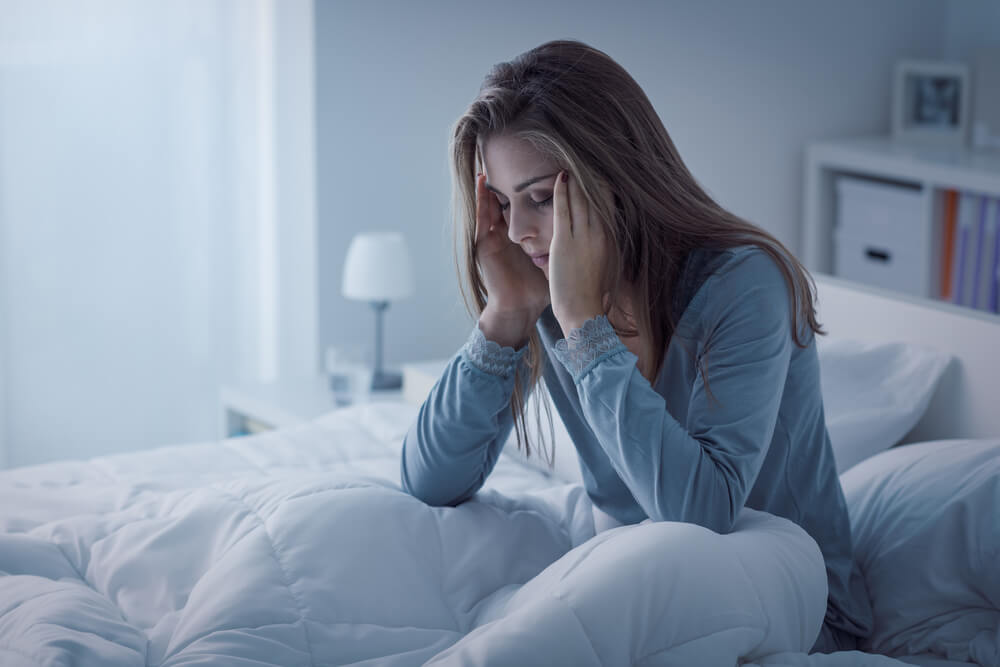Table of Contents
Creating noise can help you get a good night's sleep and combat tinnitus. You pick up certain sounds throughout the day, such as your own voice, while the world is silent at night. A lack of noise causes confusion in the brain, which in turn creates noise. The lack of noise at night makes tinnitus worse at night. The more you can create sound, the better.
Sleep disorders

If you experience ringing in the ears, you could be experiencing tinnitus. While some people simply “tough it out,” it's not worth risking your health or quality of life. Sleeping disorders are often the cause of tinnitus, so it's crucial to address the issue. Listed below are some ways you can manage your tinnitus and get a good night's sleep.
A good sleep routine helps you get a good night's sleep. Good sleep hygiene involves going to bed and waking up at the same time every day. Ideally, the room is dark, as light from outside can amplify the sound of tinnitus. Studies have shown that temperature affects sleep quality. Cool rooms are more conducive to sleep, while warm rooms can cause the person to wake up throughout the night.
Another method for treating sleep disorders and tinnitus is to set an alarm for the same time every day. If you have a hard time going to sleep, you might end up waking up earlier than you intended, which will only make your tinnitus worse at night. This method also helps you fall into deep sleep faster and improve your overall quality of sleep. There are many ways you can improve your quality of sleep and get a good night's sleep each night.
In addition to sound, another option for treating your tinnitus at night is to take a nap. Many people find that waking up to tinnitus can make them feel dizzy, so introducing a calming audio device during the night can be helpful. Besides the sound, tinnitus also affects the muscles of the head and neck.
Stress
The lack of sound at night can exacerbate the symptoms of tinnitus. Symptoms can include fatigue, a lack of sleep, and increased stress. Certain medical conditions, such as high blood pressure, can make the problem worse. To reduce the ringing, introduce sound to your nighttime routine. It can even make you dizzy. If you think that stress is making your tinnitus worse, talk to your doctor about treatment options.
A study by Gomaa et al. evaluated 100 people with tinnitus. Of these patients, 25 had no stress, whereas 44 reported moderate or high levels of stress. After adjusting for these differences, the authors concluded that there was a causal relationship between tinnitus and stress. Stress causes tinnitus to worsen during the night, but it may also increase the frequency of tinnitus.
There are numerous studies linking stress with tinnitus. People who suffer from tinnitus often experience a heightened state of stress during stressful situations. A high degree of psychiatric distress has been found in patients with chronic tinnitus. Between 20 and 60% of patients with chronic tinnitus display symptoms of depression or anxiety. In many cases, psychological distress is a precursor or an ongoing condition of tinnitus.
Some people find it helpful to practice mindfulness techniques in order to better manage their stress. However, this can be difficult for people who are always on the go. It takes time, but once you've learned to control your stress level, the ringing in your ears will lessen and you'll sleep better. The more you learn to control your stress, the faster you'll fall asleep. There are many ways to reduce your stress level and improve your quality of sleep.
Seasonal allergies

If you suffer from tinnitus, you might want to consider treatment. If your ear is too sensitive to loud noises, seasonal allergies may contribute to the noise. If you've been suffering from tinnitus for years, it may be time to see a doctor about your condition. Your doctor may recommend allergy testing and treatment. If your symptoms persist, he or she may recommend allergy shots.
Allergies can cause tinnitus during and after the allergic reaction, and the symptoms may persist. In this case, a physician may want to check for a more serious cause of the noises. Allergies affect the outer, middle, and inner ears. A reaction to a rash can also affect the inner ear. Oftentimes, allergies affect the middle ear and the nose, which can block the Eustachian tube.
There are a variety of ways to treat tinnitus, but most patients report an improvement after a few weeks of treatment. If you suffer from seasonal allergies, your doctor may recommend medications to reduce your symptoms. You may also want to try wearing earplugs to block out loud noises. If you have children, protect their ears from loud noises as well.
Other factors can make tinnitus symptoms worse at night. For example, people suffering from seasonal allergies often notice that their symptoms get worse during the winter months. As well as the cold and flu, these allergies can also cause an increase in tinnitus noises. These factors can worsen the symptoms of tinnitus and make them harder to manage.
Stress can make tinnitus worse
You may have heard that tinnitus can make you sleep less soundly at night. It's true that many people with this condition complain about tossing and turning in their beds, unable to sleep because of the ringing in their ears. However, a few simple strategies may help you get to sleep faster. Here are some of them. Try them out. You might even be able to get some rest tonight!
First, avoid loud noises. Loud noises may trigger tinnitus. Exposure to loud noises can worsen the problem and even cause permanent hearing loss. To avoid exposure to loud noises, move farther away from the source of the sound and use earplugs or turn down the volume. If you have kids, try wearing an ear plug to protect them from loud noises.
Second, learn to control the stress in your life. Tinnitus can be exacerbated by stress. If you have it, you may be suffering from an ear infection or another problem that is affecting your sleep. You should try reducing your stress and you'll be on the road to healthy sleep. By using these simple tips, you'll be able to enjoy a sound sleep at night and feel better about yourself in the morning.
First, stop ignoring your tinnitus. It's important to get a handle on the cause of your problem. This condition is exacerbated by chronic stress. It affects the quality of life of sufferers, and it can make tinnitus worse at night. If you're unable to control the symptoms, you're likely to develop a phobia or a panic attack.
White noise machines

If you have tinnitus and are having trouble sleeping, you may want to try using a white noise machine. Basically, white noise is any sound that is produced by a machine and is intended to mask other noises in the environment. White noise sounds like a running bedroom fan, an air conditioner, or a radio tuned to an unused frequency. White noise is monotonous and equal across all sound ranges, which allows your brain to ignore high-pitched sounds and focus on sleeping.
Although most white noise machines use a single sound source, the sounds are not necessarily a perfect match for the tinnitus condition. Many people who suffer from sleep apnea actually struggle to breathe while they sleep, leading to mini-awakenings. Sleep apnea is known to lead to hearing loss, and it has been linked to sleep apnea. One large study found that sleep apnea was associated with both low and high-frequency hearing loss. Additionally, the study found that bed partners of snorers were at higher risk for noise-induced hearing loss.
There are several other causes of tinnitus in the workplace, including high levels of stress, high blood pressure, and certain medical conditions. These situations may make the condition worse during the night, but using a white noise machine will help reduce the chances of a flare-up. The sound will also make you dizzy and sleepy. If your tinnitus is not caused by an underlying condition, you should visit your doctor for a diagnosis.
Studies conducted in recent years have shown that a white noise machine can help relieve tinnitus. But there is some controversy surrounding these devices, and the evidence suggests that it can even exacerbate the condition. While unstructured white noise may relieve symptoms temporarily, unstructured sound can have long-term effects on the auditory system. In addition, structured sound is better for the auditory system than pure white noise.




Comments
Loading…